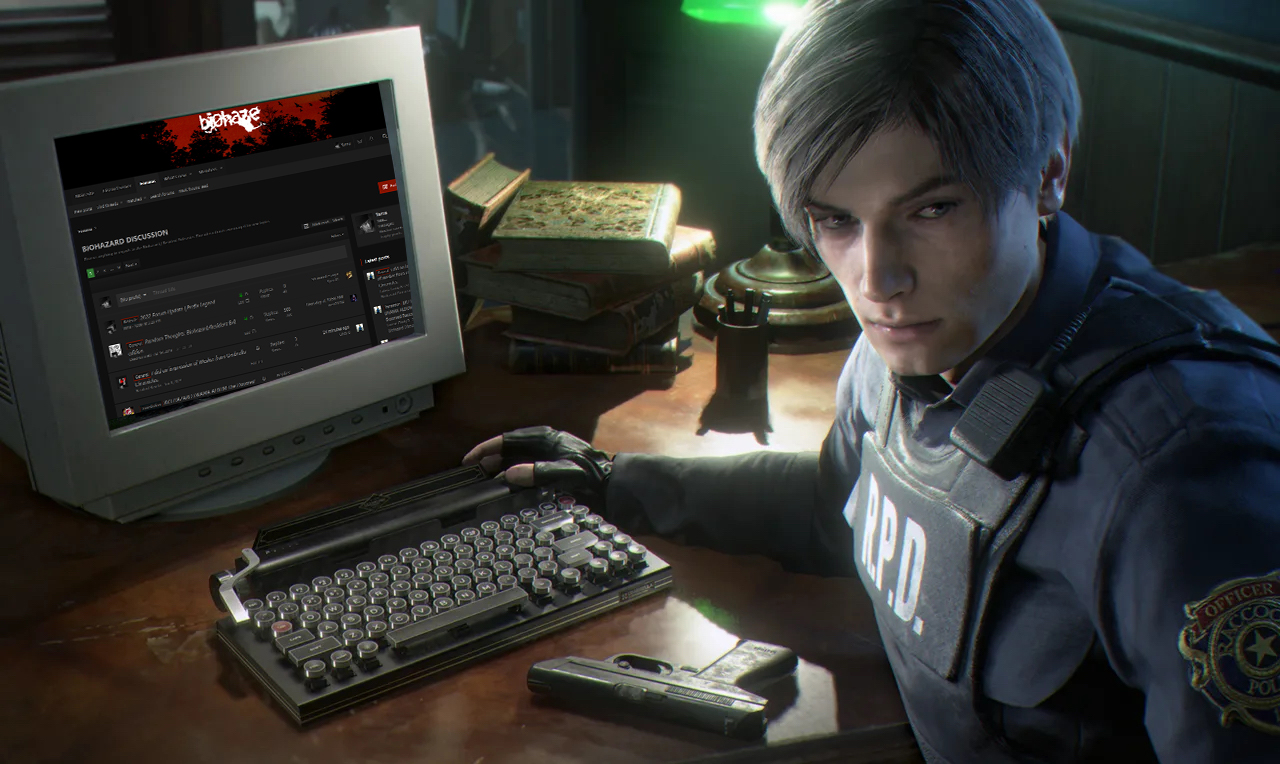I stumbled upon this article
www.finance.yahoo.com.
Who better to review a game for accessibility than a disabled gamer?
(Story copied from the original article on Yahoo. Link above.)
by Alyse Stanley
The Resident Evil 2 remake preserves many of the terrifying components that made the original a pillar of the then-budding survival horror genre while updating the 20-year-old title to meet modern expectations. Well, some modern expectations, I should say. While the overhauled graphics and more dynamic camera perspective are lovely, its accessibility options seem to be stuck in 1998.
According to the
Resident Evil 2 remake accessibility review on the site Can I Play That, the remake becomes practically unplayable for deaf and hard of hearing players because only its dialogue has subtitles. This is fairly useless in a game where auditory indicators are the only way to know if a zombie’s shuffling closer to you. If you think Mr. X is terrifying now, imagine him and his fedora popping up at random.
Susan Banks and Courtney Craven launched Can I Play That in 2018 hoping to expand the idea behind their now-retired Deaf game review site to the entire community of disabled gamers. All content is written by these players as they review games based on their accessibility and write about how and why they play the games they do. They also discuss how developers can improve going forward, even drawing up helpful reference guides that break down the basic accessibility options players with reduced mobility or hearing impairments need.
Most importantly, Can I Play That strives to keep the
conversation about accessibility alive, regardless of how or if it relates to the latest hit game. Editor-in-chief Craven told Digital Trends she ultimately wants Can I Play That “to become a go-to for both gamers and devs to learn about accessibility,” from what a game needs to be accessible and how to do it right to the many ways it can go horribly wrong.
Breaking down barriers
Craven covers most of the deaf game reviews, like the one for Resident Evil 2 remake, and though her disability doesn’t affect her hearing, she spent years playing games alongside Banks who was deaf. The two compared notes to more fully understand which elements of a game become more difficult specifically because of her hearing disability. Banks unexpectedly passed away in March, another reason why actualizing the site’s mission statement is such an important goal to its staff.

(Spider-Man settings)

(Accessibility settings in Anno)
Mobility and physical accessibility editor Antonio Martínez covers exactly what his title implies. A long-time fan of Banks and Craven’s accessibility reviews, he joined the site in February to help broaden the scope to people with physical disabilities. He has spinal muscular atrophy type 3, which reduces the strength and dexterity of his arms and hands, making some games a nightmare to play.
In his reviews, his main concern is customizability. Can a game’s controls and gameplay be tailored to accommodate players with reduced mobility? How effectively does it incorporate these options, if so? When Martinez answers these questions, he also considers how this can affect others that may fall outside of his own experience.
“It’s not just about what I personally can do or not, but also how the options (or lack of them) create barriers for people with other types of disabilities… The idea is that the reader can find out exactly if the game is accessible to their specific needs and help them find titles they can fully enjoy.”
Change is coming
Developers are starting to listen. Whether it’s Can I Play That’s reviews or how the larger conversation around accessibility and video games ballooned in recent years, or the number of disabled gamers voicing their concerns on social media, developers are starting to realize that accessibility isn’t about adding in some extra options or compromising their vision.

(Accessibility settings in Tom Clancy's The Division)
“It’s about just giving us access,” Craven told us.
Now when a AAA game like
Spyro: Reignited Trilogy releases without cutscene subtitles, it makes headlines. The
lack of accessibility options in Sekiro: Shadows Die Twice was hotly debated for weeks among the gaming community.
Craven suspects that’s exactly where their next hurdle lies — tackling the negative perception some people have of the disabled gamer community and correcting the misconception that increasing access to titles somehow waters them down or is a developer conceding to give “special” treatment to certain players. These players don’t want special treatment. They simply want the same opportunity to enjoy their hobby as able-bodied players have.
“There’s just so much stigma surrounding game accessibility and the absurd notion that there are just some things disabled people can’t do,” Craven said. “If you make games and that’s the attitude you want to have, cool, I guess? But if you’re simply another player trying to dictate how disabled people experience and interact with games, nobody wants to hear it.”







